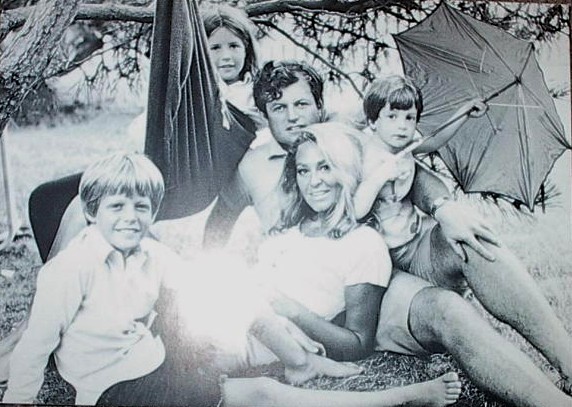January 6, 2009
If you call Joe for oil this year, expect to be disappointed.
Joseph P. Kennedy II, the president of Citizens Energy Corp., said yesterday the Venezuelan oil company Citgo Petroleum Corp. has suspended contributions to the Boston nonprofit's program that provides free heating oil to 200,000 low-income residents and Native American tribes in 23 states, including Massachusetts.
The former Massachusetts congressman, who publicized the three-year-old program in television commercials urging people to call 1-877-JOE-4-OIL, said Citgo will stop participating indefinitely because of plunging oil prices and the global economic crisis, which have crimped its revenue. Last year, Citgo provided roughly $100 million in free fuel, 90 percent of the program's funding.
At a press conference yesterday, Kennedy said Citizens Energy likely will be forced to cut about 20 percent of its heating oil distribution in Massachusetts and halt the program altogether in other states unless it can per suade Citgo to change its mind or can raise money elsewhere to buy oil and fund grants. In addition, he said Citizens would have to lay off 20 staffers.
Kennedy said he has repeatedly reached out to the Venezuelan government, which owns Citgo, in an effort to persuade the company to resume oil donations. He also urged people to write to Venezuelan President Hugo Chávez. Citgo is the US distribution arm of Venezuela's state oil company, Petroleos de Venezuela, which Chávez indirectly controls.
"We are doing everything we can," Kennedy said. "We're not ready to give up."
Citgo declined to comment and the Venezuelan embassy in Washington, D.C., could not be reached to comment.
Since Citizens Energy launched the free oil program, critics have complained that Kennedy's commercials amounted to propaganda promoting Chávez, a leftist leader who has been highly critical of the United States' economic and foreign policies. Chávez has also cultivated ties with other countries at odds with the United States, including Iran and Cuba. In a speech at the United Nations in New York two years ago, he called President Bush the "devil."
"Maybe now, instead of acting as propaganda tool of socialist dictator Hugo Chávez, Joe Kennedy can focus on simply helping those who couldn't afford to question the real cost behind his heating oil," said Barney Keller, spokesman for the Massachusetts Republican Party.
Kennedy, however, said other US oil companies refused to contribute to the program, even when they recorded booming profits in recent years. And Chávez's ire is directed at Bush, he said, not Americans in general. He added that he doesn't believe Citgo's withdrawal was timed to coincide with Bush's departure from the White House in two weeks.
"It's a financial issue, that's all," Kennedy said.
Mark Sawyer, an associate professor at the University of California in Los Angeles who has written articles and taught classes on Latin America, said the program was part of Chávez's efforts to build goodwill in the United States and other countries.
"He tried to communicate directly with segments of the American population with the understanding that Americans are not monolithic in their perspectives," said Sawyer.
But with the decline in oil prices, he said, Venezuela will have to cut back on its philanthropic programs, reducing Chávez's political influence beyond his country's borders.
Last year, the program offered eligible families up to 100 free gallons of heating oil, and issued grants to Native American tribes to help pay for oil. Citgo had gradually increased its level of funding over the past few years.
Some say the impact of Citgo's decision to stop participating is mitigated by the dramatic drop in heating oil costs. The average price in Massachusetts - currently $2.26 a gallon - is down 52 percent since July, when it peaked at $4.71, according to the Massachusetts Department of Energy Resources. A year ago, the average cost was $3.32 a gallon.
At the same time, state and federal governments have stepped up subsidies to struggling families through the Low-Income Home Energy Assistance Program.
"For the first time ever, the program is fully funded," said Susan Kooperstein, a spokeswoman for Action for Boston Community Development Inc., a nonprofit that provides services to low-income residents.
Last year, Kooperstein said, the agency was able to give the city's poorest families a maximum of $865, which bought more than a tank of oil. This year, the maximum has been raised to $1,305, which now buys more than three tanks.
Kooperstein also said the income threshold for assistance has been increased, from $42,400 for a family four to more than $53,000.
"We can now serve people who fall through the cracks," she said.
Residents who need help paying for heating oil can call the state heating assistance hotline at 800-632-8175. Citizens Energy also plans to continue operating a natural gas assistance program, in partnership with Distrigas, that provides a $150 utility bill credit to eligible households.
Citizens, which Kennedy founded in 1979, also runs a number of other energy programs, including those focused on wind and biofuels, energy efficiency, and electricity transmission.
Go to:

